- Home
- Herbert Strang
Palm Tree Island Page 10
Palm Tree Island Read online
Page 10
the differences between woods, which until that time we had thoughtlittle about, but was now become a matter of importance, with ourfortress in view. We needed a hard, strong wood, yet not too hard tobe worked with our clumsy tools, and we spent a day or two in testingthe varieties of trees that grew on our island. The cocoa-nut palm wasby far the most plentiful, and the bread-fruit tree came next: but wedid not think of cutting down either of these to make posts of, becausethey were food trees, and, being ignorant how often they bore fruit, wedid not venture at the first to diminish the source of our provision byso much as one. Besides, we found, when we tried to cut a cocoa-nuttree which had been cast down in the storm, that the wood was exceedinghard, and so heavy that it sank in water. After this testing, I say,we discovered a tree on the hill-side whose wood was neither too hardnor too soft, and as it existed in great numbers, and bore no fruit,none that was edible, at least, we determined on this as the materialfor our house. I never knew the name of it, but it seemed to be a kindof pine.
I had now, as I say, clean lost count of the days, and had no means ofkeeping a journal, even if I had had the patience. You must thereforethink of us as getting up every day with the sun, and going to bedevery night when it became dark. I say, going to bed, though indeed wehad little that deserved the name, our couch consisting of nothing butthe bare ground and such leaves and grasses as we found serviceable.It was a mercy that the climate was so even, and the nights were not atall cold, or I do believe we should have perished, our clothing beingso light. Indeed it was not long before we began to look with concernupon our garments, which were much rotted already by the drenchingsthey had had, and were becoming rent and frayed from hard usage. Wehad no means either of repairing them, or of making others, and wecould only think that in course of time we should have to go naked,like the savages. However, this did not trouble us at the moment,since we had so much to do and to think about, what with getting ourfood, and preparing our house, and fending off the dogs, which werevery troublesome, keeping at a distance, indeed, by day, but prowlingaround our hut at night, and scratching at the walls so that they oftendisturbed our sleep. Between sunrise and sunset we worked verydiligently, and resting one day in seven--or it might be five, or sixsometimes, since we kept no strict count; but I did not think God wouldbe angry with us if we were not very exact in this, since we did aswell as we could.
We set to work getting material for our big house, as we called it,immediately after our little house, or hut, was finished. At first wewere greatly disheartened, for though we chose small trees of which tomake our logs, both for easiness of felling and of moving when theywere felled, we found that our clumsy axes were very poor tools. Notonly did the flints need sharpening every few minutes, like a mower'sscythe, but being attached to the handles only with creepers, and notvery skilfully, they continually worked loose, and we had to desist inorder to bind them again, which mightily exasperated us. At the end ofthe first day, seeing what little progress we had made, we were readyto despair. "It will take us a hundred years, master," says Billy,"and the corner posts will be rotted before we get the roof on. Idon't believe in none of your Robinson Crusoes; and we'd better havebeen drownded; and I warrant you Hoggett and Chick and great fatWabberley are just enjoying themselves somewhere, and I'm sick of mylife."
[Sidenote: Billy Scoffs at Romance]
I have forgot to say that when we were eating our meals, or resting, Ihad told Billy the surprising story of Robinson Crusoe, of whom he hadnever heard, encouraging both him and myself with the tale of how thatgood mariner, after tribulations like to our own, came at lengthhappily to his own land again. But I own I thought our case was muchworse than Crusoe's, for he had clothes, and corn food, and goodliquors, and firearms, and good tools, though few; and, indeed,everything he needed save company, and that came to him at last;whereas we had absolutely nothing except the fruits of the island andwhat things we could make for ourselves. Yet in reckoning up oursituation and his, I felt very thankful that I had a companion, for theworst of evils are tolerable if we have some one to share them, and Iwonder that Crusoe did not go stark mad, being alone for so many yearstill his man Friday came. Billy often scoffed when I told him what Iremembered of Crusoe's story, and said he wasn't near so badly off aswe were, and if he--that is, Billy--only had what Crusoe had, he woulddo as much as he, or more, especially if he had a forge andblacksmith's tools. And in particular, when I told him of Crusoe'shorror when he saw a footprint in the sand, he burst into a laugh, andasked why there was only one footprint, and made me go down to ourlittle bit of sandy beach there and then, and showed me the prints hemade with his own feet, and asked me triumphantly whether the man whosemark Crusoe saw was a one-legged man, or what.
Another thing I must mention, before I forget it, was that the firsttime we went down to the shore we saw that the second boat, which,being broken, the mariners had left, had been washed away. We werevery much vexed at this, and wished we had had the forethought to dragit higher up, where the waves could not reach it. I do not think wecould have mended it enough to make it seaworthy, but we might havetried; and it would at least have provided us with planks which weshould have found useful. However, it was gone, and there was no userepining.
But to come back to our house. We were, I say, in despair at the smallresult of our first day's hard labour, especially as we saw no way ofimproving our tools, and had no other means of felling the trees. Itcame into my mind that if we only had fire, we might have burned themdown, and we tried again for a good while to make fire with the stickand the chunks of wood. But we had no more success than before, andBilly cried out that he wished he could get some of the fire that setthe mountain water a-boiling, but he supposed he would be burned aliveif he tried to get any. I smiled at his simplicity, and to ease histhoughts a little, I asked him to accompany me up the mountain, itbeing my turn to take our nightly look-out over the sea. It chancedthat as we strayed over the mountain-side we lighted upon one of thesplinters of the boulder which Billy had broken before, and the gleamof metal in it catching my eye, I said to Billy that it was desperatelyplaguy to be where metal abounded, and not be able to use it.
[Sidenote: Making Fire]
"Why, master," says he, "who knows as how we can't use it? We ain'ttried. Why didn't we think of it afore?" And straightway he picks upthe splinter, and I found a flint, and he struck them together, andfairly danced with delight when he made a spark, though he stoppeddancing and howled next moment, having hurt his bare feet on the sharprock.
I felt as great a delight as Billy, it being plain that we now had thefirst means of making fire, and if only we could discover anything toserve as tinder we might soon have a fire as large as we pleased. Wewent back to our hut by the wood very quickly, being eager to trybefore it was dark; but though we collected plenty of dry grass andstruck spark after spark out of the flint, we could not kindle a flame,and, to our great disappointment, ate cold supper again. The next dayalso we were no more successful, though we neglected our work while wetried again and again, and should have been very sorry for the loss oftime but that time mattered very little to us. However, in theafternoon, when we went into the wood to get cocoa-nuts, I sat myselfdown on the trunk of a great tree which had been thrown down by astorm, I suppose--not our storm, but earlier, for the leaves were allwithered. I sat myself down, I say, but went lower than I intended,the trunk, that appeared solid, giving way under me, so that I toppledover backwards in a cloud of dust. When we looked at the tree, we sawthat the inside of it was completely rotted away, with the dry rot, aswe say, and we both cried out at the same moment that this might be ourtinder. We immediately broke off a strip of the bark, and collectedsome of the dust upon it, and then striking a spark, we caught it onthe tinder, which was, however, so dry that it flared up and burnt outin an instant, without kindling the bark. We remedied this very soonby mingling some dry grass, rubbed small, with the wood dust, and thisburning more slowly, it caused the bark
to smoulder, from which we blewup a flame, and in a few minutes had a very pretty fire of sticks.Billy leapt around it in an ecstasy, and I could not help but liken himto a fire-worshipper, whose religion I understood better now thanbefore, after all the trouble we had had.
"Now we can bake some bread," said I.
"And roast some pork," says Billy.
"We had better make bread first," said I.
"My mouth is watering for the crackling," says Billy.
"Bread will be the sooner done," I said.
"But the taste of pork stays in the mouth longer," says Billy.
It nearly came to a quarrel between us, as to which should be cookedfirst, meat or bread; but when we were in the heat of the argument weperceived that our fire was going out, and that brought us to oursenses. We piled more sticks on it, and broken cocoa-nut shells, andBilly, yielding to my desire for bread, went out into the wood and soonreturned with two or three fine large fruits, weighing, I should think,about three pounds apiece. We had seen the native way of cooking thisfruit, paring off the rough rind and baking the inner part, between therind and the core, in an oven; but having no oven, though we promisedourselves to build one soon, we laid the fruits as they were on a redpart of the fire, turning them about as you do chestnuts, and after awhile we took them up and, having broken away the rind, ate the breadhot, and I do think I had never in my life before made such a heartymeal as I now did, though, to be sure, the bread had a slight flavourof burnt wood. However, we ate a good supper, and went to bed muchhappier than at any time since we first came to the island.
[Sidenote: Bread]
We made our breakfast in the same way when we awoke, but finding thatit took some time to get a fire, we considered whether we could notkeep it constantly alive, yet without needing to replenish it toofrequently with fuel, which would have been a trouble, as well as ahindrance to our work. After some thought, we devised a kind ofcovered-in grate, which we built four-square of stones and pieces ofrock, filling up the spaces between them, where they did not fit, withthe clayey earth I have before mentioned, which we moistened withwater, fetched from the lake in half a cocoa-nut shell, and then workedwith our hands into a kind of mortar. We made a cover to this gratewith small boughs plaited with grass and smeared all over with earth,and at the bottom of the grate we left two small holes by which airmight enter, not a great current, but enough to keep the firesmouldering without burning much fuel. This device answered ourexpectations very well. We found that by casting into the embers aquantity of dry brushwood, and blowing upon them, we could obtain abrisk fire in a very little time, and when we had no more need of itfor the present, we laid on a heap of grass and twigs, not too dry, andshut down the lid, and so found that we could keep our fire alive for awhole day with no more tending. We discovered, moreover, that bymaking a second enclosure about our grate, and covering this in also,we had a very convenient oven, in which we could lay in the morning thebread-fruit we needed for our dinner, and at midday find it very wellcooked, neither too much nor too little. I must not forget to say thatour neighbours the dogs watched these proceedings very curiously, andthe first time we left the grate they went to it, to investigate withtheir noses; but the stones being very hot, their noses were burnt, andthey ran yelping away, and came to it no more except the first time weroasted some pig's flesh, and then, being in a perfect frenzy at thesavoury smell, they scratched down the walls of our oven and ran awaywith our meat, hot as it was, so that we had none for dinner. At thisBilly flew into a fine rage, I assure you, and we had to consider ofsome way of preserving our meat from these greedy maws, of which morein its place.
[Sidenote: Wood-cutting]
Having now fire at our command, we set about putting it to the use forwhich we had so greatly desired it, namely, the felling of trees forour big house. We kindled fires against the trunks of four trees of afair size which we selected for our corner posts, at first setting thefire all round, until we saw both that the wind, which was fairlystrong that morning, blew the flames all one way, and also that itwould be more convenient to burn the tree on the opposite side from thedirection in which we wished it to fall; then we put out the firesexcept on the windward side. We found it no easy matter to keep theflames at a just height, so that they did not burn more of the trunksthan we desired. Every now and again we chipped away the charred woodwith our axes, and so the fire ate deeper and deeper into the trees,and we cut deeper and deeper also, until by the close of this day thetrees stood, as it were, but by a thread. We wished we had ropes,wherewith we might pull the trees to the ground, but having none wethrew ourselves with great violence against the trunks, and so castthem all down but one, which we left for a little more burning on themorrow, and went to our hut very well satisfied with our day's work.
We were sitting at our supper when of a sudden Billy gave a jump andcried out, "What if any savages have seen our smoke!" Our fires hadgiven a good deal of smoke, especially the damper woods with which wefed them; but I said that even the nearest island was too far off forour smoke to be easily seen from it, and as for any savages who mightbe cruising in canoes, they would suppose it came from the mountain. Icould not doubt that our island was an object of terror to the peoplesof the neighbouring islands, and I said we ought to be thankful to Godthat it was so, since it was better to be lonely than to be madeslaves, or eaten by cannibals. This comforted Billy, though he saidthat we had better use the driest woods we could find for our fires, sothat the smoke would be less.

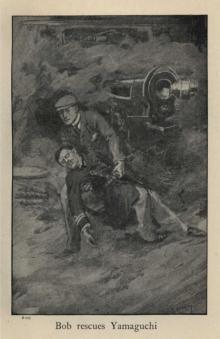 Kobo: A Story of the Russo-Japanese War
Kobo: A Story of the Russo-Japanese War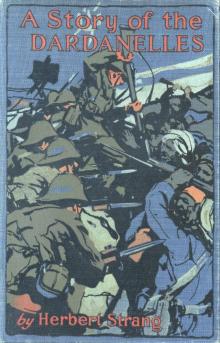 Frank Forester: A Story of the Dardanelles
Frank Forester: A Story of the Dardanelles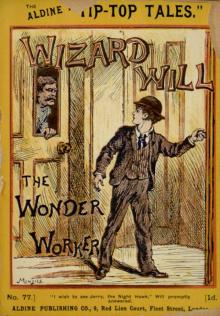 Wizard Will, the Wonder Worker
Wizard Will, the Wonder Worker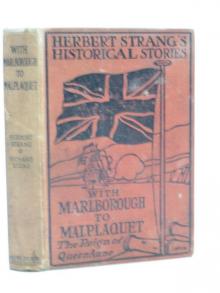 With Marlborough to Malplaquet: A Story of the Reign of Queen Anne
With Marlborough to Malplaquet: A Story of the Reign of Queen Anne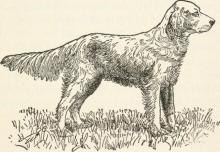 The Dogs of Boytown
The Dogs of Boytown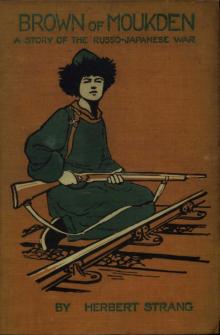 Brown of Moukden: A Story of the Russo-Japanese War
Brown of Moukden: A Story of the Russo-Japanese War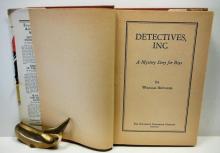 Detectives, Inc.: A Mystery Story for Boys
Detectives, Inc.: A Mystery Story for Boys Bright Ideas: A Record of Invention and Misinvention
Bright Ideas: A Record of Invention and Misinvention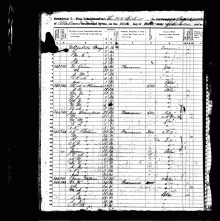 Lost in the Cañon
Lost in the Cañon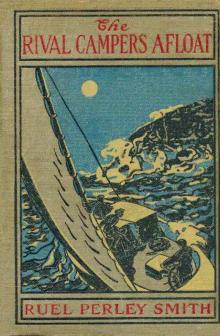 The Rival Campers Afloat; or, The Prize Yacht Viking
The Rival Campers Afloat; or, The Prize Yacht Viking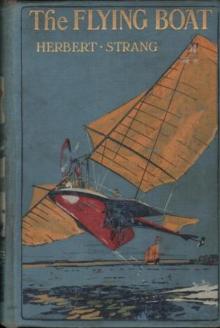 The Flying Boat: A Story of Adventure and Misadventure
The Flying Boat: A Story of Adventure and Misadventure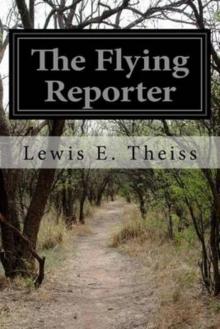 The Flying Reporter
The Flying Reporter Jack Hardy: A Story of English Smugglers in the Days of Napoleon
Jack Hardy: A Story of English Smugglers in the Days of Napoleon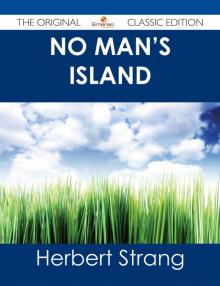 No Man's Island
No Man's Island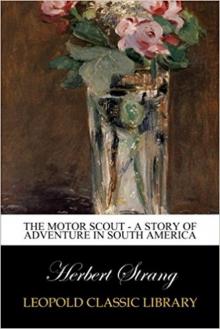 The Motor Scout: A Story of Adventure in South America
The Motor Scout: A Story of Adventure in South America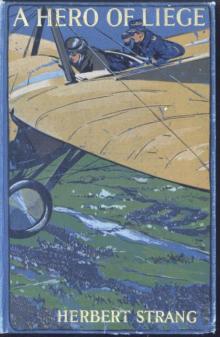 A Hero of Liége: A Story of the Great War
A Hero of Liége: A Story of the Great War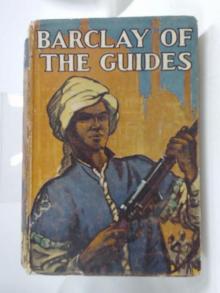 Barclay of the Guides
Barclay of the Guides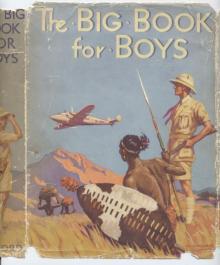 Carry On! A Story of the Fight for Bagdad
Carry On! A Story of the Fight for Bagdad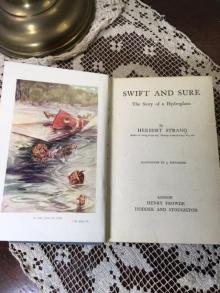 Swift and Sure: The Story of a Hydroplane
Swift and Sure: The Story of a Hydroplane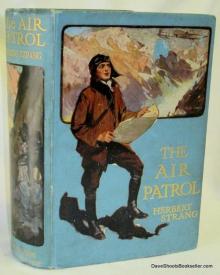 The Air Patrol: A Story of the North-west Frontier
The Air Patrol: A Story of the North-west Frontier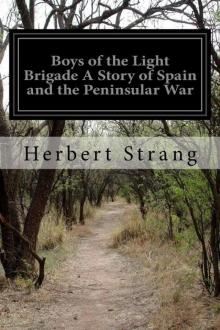 Boys of the Light Brigade: A Story of Spain and the Peninsular War
Boys of the Light Brigade: A Story of Spain and the Peninsular War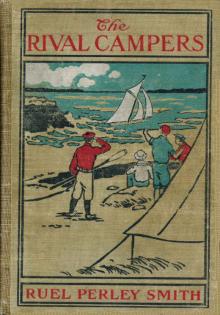 The Rival Campers; Or, The Adventures of Henry Burns
The Rival Campers; Or, The Adventures of Henry Burns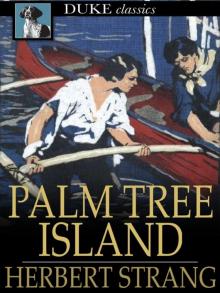 Palm Tree Island
Palm Tree Island The Friends; or, The Triumph of Innocence over False Charges
The Friends; or, The Triumph of Innocence over False Charges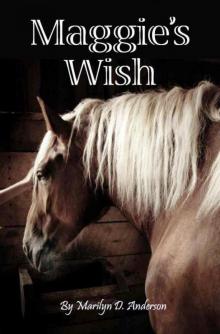 Maggie's Wish
Maggie's Wish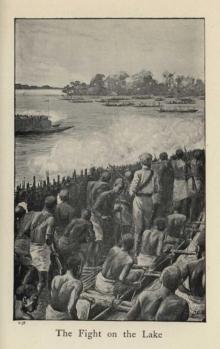 Tom Burnaby: A Story of Uganda and the Great Congo Forest
Tom Burnaby: A Story of Uganda and the Great Congo Forest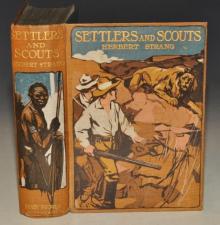 Settlers and Scouts: A Tale of the African Highlands
Settlers and Scouts: A Tale of the African Highlands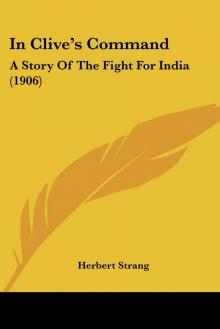 In Clive's Command: A Story of the Fight for India
In Clive's Command: A Story of the Fight for India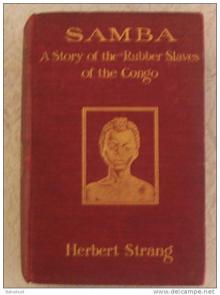 Samba: A Story of the Rubber Slaves of the Congo
Samba: A Story of the Rubber Slaves of the Congo The Auto Boys' Quest
The Auto Boys' Quest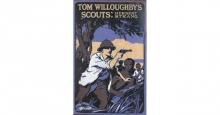 Tom Willoughby's Scouts: A Story of the War in German East Africa
Tom Willoughby's Scouts: A Story of the War in German East Africa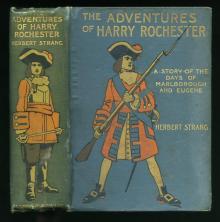 The Adventures of Harry Rochester: A Tale of the Days of Marlborough and Eugene
The Adventures of Harry Rochester: A Tale of the Days of Marlborough and Eugene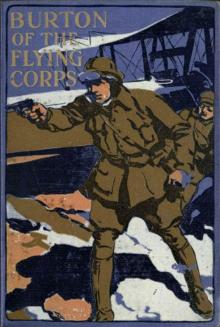 Fighting with French: A Tale of the New Army
Fighting with French: A Tale of the New Army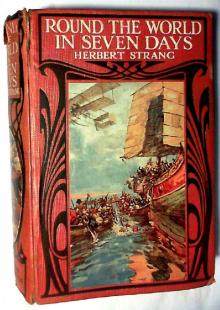 Round the World in Seven Days
Round the World in Seven Days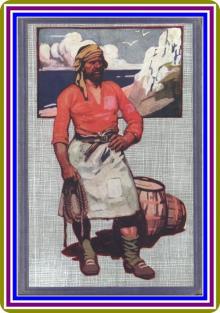 The Adventures of Dick Trevanion: A Story of Eighteen Hundred and Four
The Adventures of Dick Trevanion: A Story of Eighteen Hundred and Four